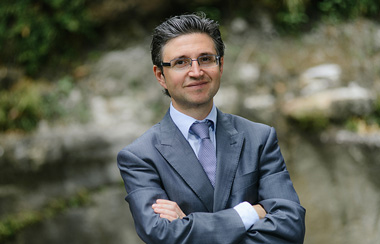… as retail investors get more ESG options
by Greg Bright
There is a big difference between the way the three investment management distribution segments address ESG issues. For retail investors, it is about the ‘product’. The rise of new-style listed invested vehicles, including sophisticated ETFs, has given retail investors many more options to exercise ESG preferences.
Years ago, since the early 2000s, institutional investors (such as big super funds) started to integrate ESG principles into all their investment strategies and procedures. Wholesale investors (financial planners and their dealer groups and platforms) struggled to follow suit, except through their big balanced fund managers who were able to emulate the super funds. And, for the third, retail segment, (direct investor) market, it is still pretty much up to the individual to develop a cake-mix of investments which includes ESG principles.
What is helping the retail and wholesale investors now is the proliferation of smart-beta and other specialist ETFs which may, or may not, incorporate ESG to a greater, or lesser, extent.
Against that background, BetaShares, the largest ETF provider in Australia by number of ETF options in this market (and third-largest in Australia by total assets), held a media briefing including two of its supporters: Morgan Stanley and Future Super in Sydney last week.
Alex Vynokur, BetaShares chief executive, said: “We’ve seen a notable rise in demand for responsible investments across all segments of the market, including institutional investors, advisers and individual investors.
“It appears the millennial segment of clients may be the most natural fit for ethical products, with a particularly high level of interest emanating from younger investors. In saying that, demand is strong across the board, and we additionally see a number of investors from earlier generations seeking to invest according to a set of responsible investment principles.”
According to the latest data from the Responsible Investment Association Australasia, as of December 2016, ethical funds in Australia managed $69.9 billion. The association’s figures also indicate that ethical funds’ AUM grew by 26 per cent annually over the 10 years to end 2016, which compares to 9 per cent annual growth recorded by the broader Australian funds management industry.
But these figures are rubbery. They have no regard for the integrated and overlay-mandated ESG strategies of big funds, which make up more than one-third of the Australian super industry. They represent only the more-easily defined “ethical”, “responsible” or “ESG” options among for-profit and not-for-profit funds and fund managers.
As an aside, “ethical” fund managers do not always rate well with the international ratings firms which have grown up to add some further sophistication to the investment process or style. For instance, many sign up to the international UNPRI principles but, according to consulting firms such as Mercer, which probably leads the way globally in this regard, they pay lip service to integrating ESG across their processes.
And there-in lies the rub. There remains a host of definitional issues for the funds management industry to come to terms with – both at the top-down level of comparing “ethical” with “responsible” and the more broadly acceptable institutional focus of “ESG” – and the issues surrounding what constitutes a “good”, “clean” or “well-governed” company.
Vynokur said that as responsible investing became more mainstream, the specific methodologies used by investment strategies were increasingly important in investors’ decision-making processes. In the broadest sense, he said, “ethical and sustainable” investments were labels used by asset managers to identify that the constituents of a portfolio had been selected for reasons other than those that were solely economic. However, as the industry had grown, investors were now faced with products using a wide range of methodologies to select their holdings. “Before we launched our latest ethical ETF, the Australian Sustainability Leaders ETF (ASX code: FAIR), we took into consideration the current concerns of responsible investors”, he said.
“It was critical for us to develop something with broad eligibility criteria. For example, while environment concerns remain core to the screens we use, we added a substantial number of other filtering criteria to FAIR, including the need for gender diversity at a board level and ensuring that businesses were not involved in activities like gambling, payday lending, or selling tobacco, to name a few.”










